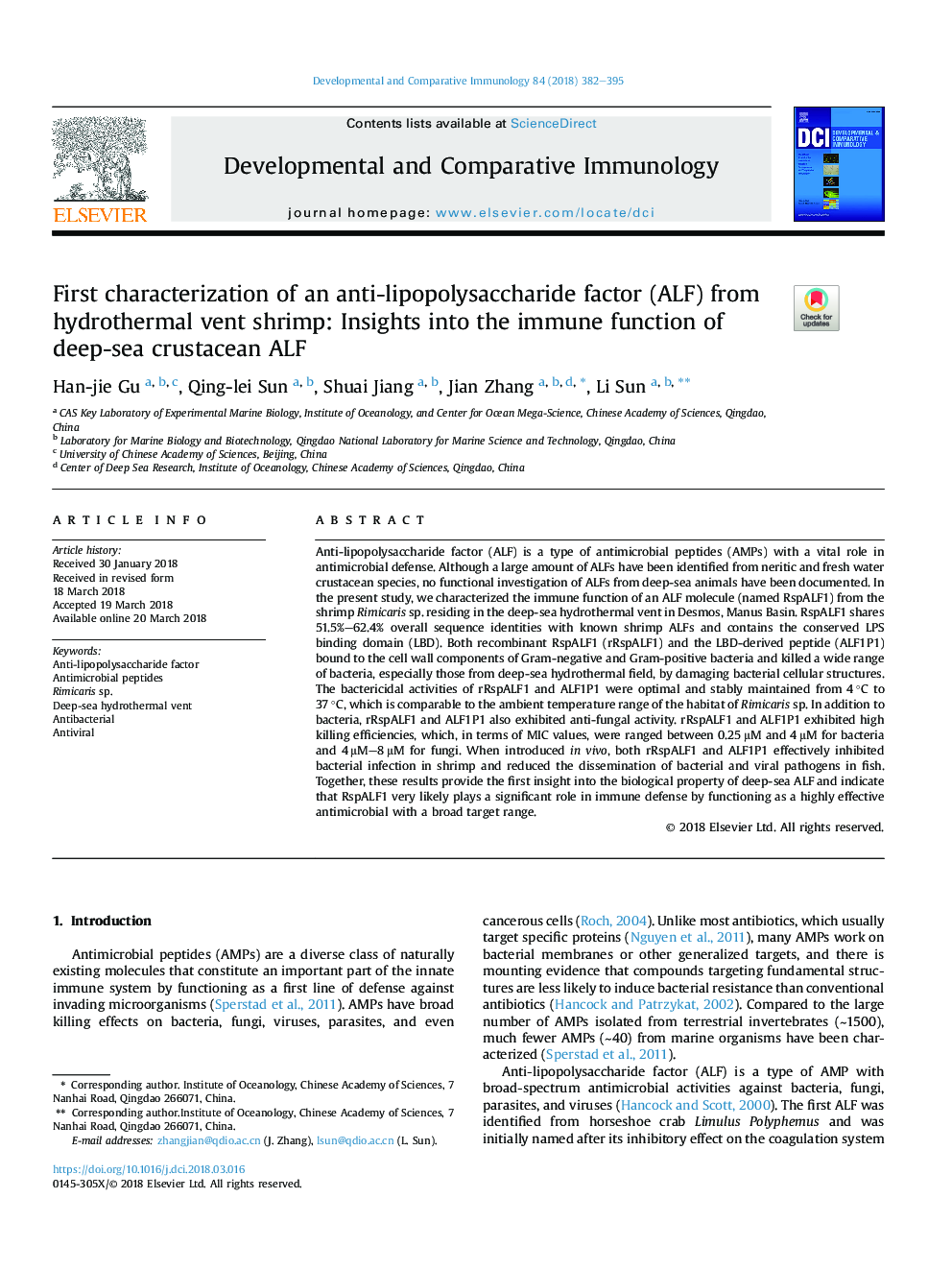| Article ID | Journal | Published Year | Pages | File Type |
|---|---|---|---|---|
| 8497743 | Developmental & Comparative Immunology | 2018 | 14 Pages |
Abstract
Anti-lipopolysaccharide factor (ALF) is a type of antimicrobial peptides (AMPs) with a vital role in antimicrobial defense. Although a large amount of ALFs have been identified from neritic and fresh water crustacean species, no functional investigation of ALFs from deep-sea animals have been documented. In the present study, we characterized the immune function of an ALF molecule (named RspALF1) from the shrimp Rimicaris sp. residing in the deep-sea hydrothermal vent in Desmos, Manus Basin. RspALF1 shares 51.5%-62.4% overall sequence identities with known shrimp ALFs and contains the conserved LPS binding domain (LBD). Both recombinant RspALF1 (rRspALF1) and the LBD-derived peptide (ALF1P1) bound to the cell wall components of Gram-negative and Gram-positive bacteria and killed a wide range of bacteria, especially those from deep-sea hydrothermal field, by damaging bacterial cellular structures. The bactericidal activities of rRspALF1 and ALF1P1 were optimal and stably maintained from 4â¯Â°C to 37â¯Â°C, which is comparable to the ambient temperature range of the habitat of Rimicaris sp. In addition to bacteria, rRspALF1 and ALF1P1 also exhibited anti-fungal activity. rRspALF1 and ALF1P1 exhibited high killing efficiencies, which, in terms of MIC values, were ranged between 0.25â¯Î¼M and 4â¯Î¼M for bacteria and 4â¯Î¼M-8â¯Î¼M for fungi. When introduced in vivo, both rRspALF1 and ALF1P1 effectively inhibited bacterial infection in shrimp and reduced the dissemination of bacterial and viral pathogens in fish. Together, these results provide the first insight into the biological property of deep-sea ALF and indicate that RspALF1 very likely plays a significant role in immune defense by functioning as a highly effective antimicrobial with a broad target range.
Keywords
Related Topics
Life Sciences
Biochemistry, Genetics and Molecular Biology
Developmental Biology
Authors
Han-jie Gu, Qing-lei Sun, Shuai Jiang, Jian Zhang, Li Sun,
